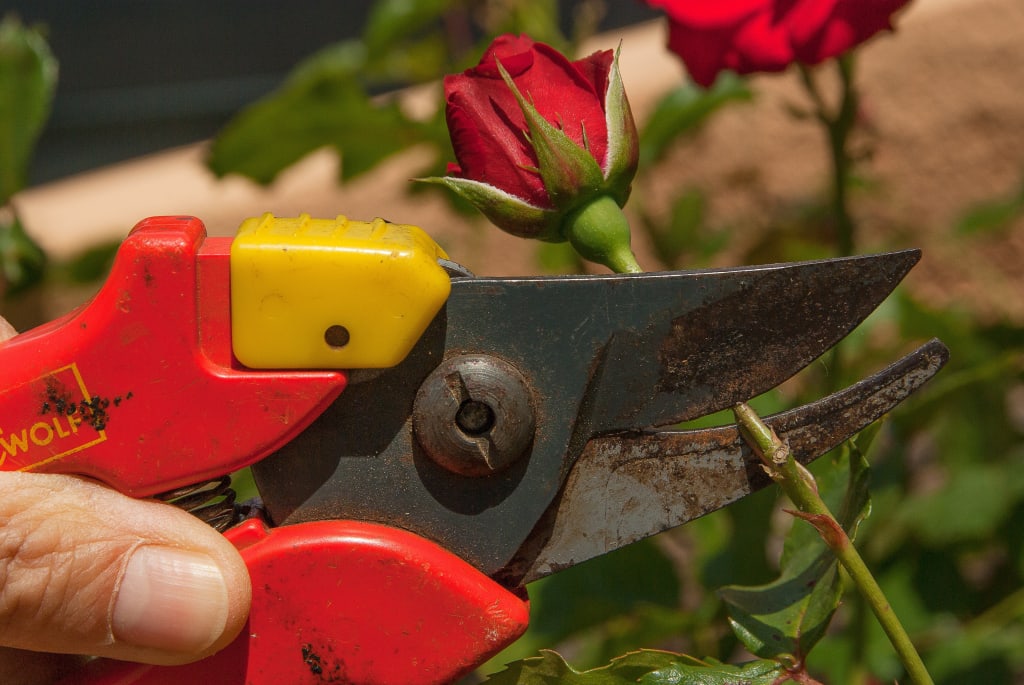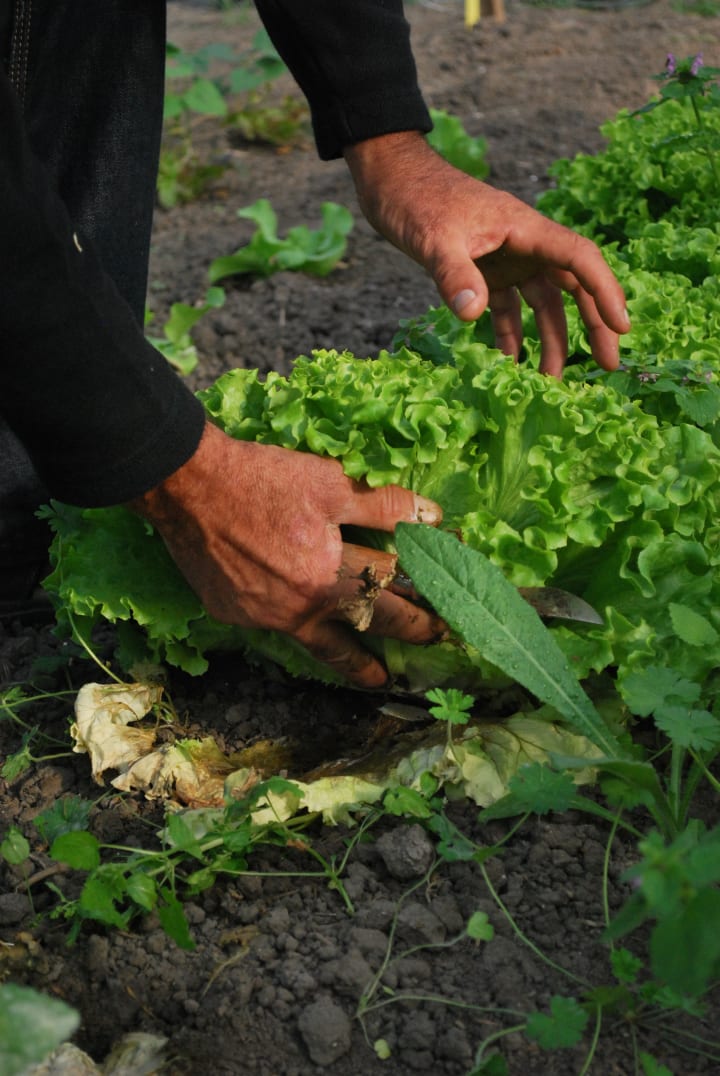Gardening on a Budget
Blooming Beautiful Without Breaking the Bank

Do you dream of a flourishing garden bursting with vibrant blooms and delicious vegetables, but your wallet whispers a different story? Fear not, budget-conscious nature lovers! This guide unlocks the secrets to cultivating a thriving garden without blowing your budget.
Unleashing the Inner MacGyver: Creative Upcycling for Garden Essentials
Forget fancy, expensive garden centers! Embrace your inner MacGyver and transform everyday items into essential gardening tools and containers.
• Repurposed Pots & Planters: Give old buckets, colanders, washtubs, or even worn-out shoes a new lease on life as charming planters. Drill drainage holes for healthy plants, then unleash your creative spirit with a splash of paint.
• DIY Trellises & Supports: Utilize old tomato cages, chicken wire stretched between poles, or even sturdy branches to create trellises for climbing plants.
• Seed Trays & Upcycled Containers: Egg cartons, yogurt containers, or plastic bottles with drainage holes can serve as budget-friendly starter trays for seedlings.
• Watering Wonders: Repurpose old watering cans, milk jugs, or even plastic bottles with a spray nozzle for watering your plants.
• Compost Caddies: An old metal bin or even a sturdy cardboard box can be transformed into a compost bin to collect kitchen scraps and yard waste.
Embrace the Power of Seeds: Sow Success Without Spending a Fortune
Seeds are the cornerstone of a budget-friendly garden. Here's how to maximize your seed-starting game:
• Harvest Seeds from Existing Produce: Many fruits and vegetables, like tomatoes, peppers, and herbs, readily offer viable seeds from which you can grow new plants. Simply dry the seeds properly and store them in a cool, dark place for future planting.
• Seed Swaps & Seed Sharing: Connect with fellow gardeners in your community to swap seeds. Local gardening clubs, online forums, or even Facebook groups often host seed-sharing events, fostering a collaborative spirit.
• Focus on Heirloom Varieties: Heirloom seeds are not only open-pollinated (meaning you can save seeds from your harvest), but they often boast unique flavors and characteristics not found in commercially produced hybrids.
Planting Power: Free & Low-Cost Options for Soil & Fertilizer
Soil and fertilizer don't have to be bank breakers. Here are some clever ways to nourish your garden without burning a hole in your pocket:
• Embrace the Power of Compost: Turning your kitchen scraps and yard waste into nutrient-rich compost provides a free, natural fertilizer. Start a simple compost bin using readily available materials.
• Leaf Litter Magic: Shred fallen leaves from your yard (or gather them from a neighbor's with permission) to create a natural mulch that retains moisture, suppresses weeds, and decomposes over time, enriching the soil.
• Coffee Grounds & Eggshells: Coffee grounds (used) are a mild source of nitrogen, while eggshells provide a calcium boost. Work them directly into the soil for a budget-friendly fertilizing solution.
• Free Manure: Local farms or stables sometimes offer free or low-cost manure, which can be composted or aged before incorporating it into your garden beds.
Water Wisely: Conservation Techniques for a Thriving Garden
Water is essential, but conserving it is crucial for a budget-friendly garden. Here are some smart ways to keep your plants hydrated without overspending:
• Harvest Rainwater: Install a rain barrel to collect rainwater from your roof. This free resource is ideal for watering your plants.
• Early Morning Watering: Water your plants early in the morning to minimize evaporation. The cooler temperatures also reduce stress on your plants.
• Mulch Matters: Applying a layer of organic mulch around your plants retains moisture in the soil, reducing the frequency of watering needed.
• Group Plants with Similar Water Needs: Grouping plants with similar water requirements allows you to water efficiently, avoiding overwatering some plants and underwatering others.
Beyond Blooms: Budget-Friendly Pest Control Solutions
Pests can wreak havoc on your garden, but combating them doesn't require expensive chemicals. Explore these natural and safe alternatives:
• Companion Planting: Attract beneficial insects like ladybugs and lacewings by planting flowers like marigolds and nasturtiums near your vegetables. These natural predators help control harmful garden pests.
• Homemade Sprays: Combat aphids and other soft-bodied insects with a simple solution of neem oil and water. You can also create a soap spray to deter certain pests.
• Release the Power of Beneficial Nematodes: These microscopic worms are natural predators of common garden pests like grubs and beetles. Introduce them into your garden soil to combat.
• Encourage Beneficial Birds: Provide nesting boxes and birdbaths to attract birds like chickadees and wrens that feast on garden pests like caterpillars and grubs.
Thrifty Tools & Techniques: Maximize Efficiency Without Maxing Out
Equipping your garden doesn't require a shopping spree at the local garden center. Here's how to make the most of essential tools and techniques:
• Sharpen Your Tools: A blunt trowel or pruners are less effective and more frustrating to use. Invest in a good quality sharpening stone and regularly maintain your tools for optimal performance.
• DIY Weed Control: Ditch expensive weed killers. Regularly hand-pull weeds before they go to seed. For hard-to-reach areas, a homemade vinegar spray (diluted white vinegar) can be effective for spot treatment.
• Embrace the Cardboard Mulch Technique: Lay down overlapping sheets of cardboard around your plants, then cover with a thin layer of mulch. This suppresses weeds while decomposing over time, adding nutrients to the soil.
• Seed Saving: A Sustainable Cycle: Many vegetables and herbs like lettuce, beans, and peppers allow you to collect seeds from your own harvest to use in future plantings. This not only saves money, but also allows you to cultivate varieties that thrive specifically in your climate and conditions.
The Beauty of Propagation: Multiplying Plants for Free
Purchasing numerous plants can quickly strain your budget. Explore the wonders of plant propagation to multiply your favorites for free!
• Division: Certain perennials like irises and daylilies can be divided and replanted to create new plants. Simply dig up the clump, carefully separate the roots, and replant each division in separate locations.
• Stem Cuttings: Many herbs like rosemary, mint, and basil can be propagated from stem cuttings. Take cuttings with several nodes, dip them in rooting hormone (optional), and plant them in a pot with a well-draining potting mix.
• Layering: For woody plants like shrubs and some climbers, layering allows you to create new plants without severing them from the parent plant. Make a shallow cut on a lower branch, bury the portion below the cut in moist soil, and weigh it down with a pin or wire. Once roots develop, you can sever the branch and transplant it to a new location.
Planning for Efficiency: Design a Budget-Friendly Garden Layout
A well-designed garden allows you to maximize your space and resources. Here are some smart planning tips:
• Group Plants According to Needs: Group plants with similar sun and water requirements to create efficient watering zones. This reduces the risk of overwatering some plants while underwatering others.
• Vertical Gardening: Utilize vertical space on walls and fences by installing hanging planters, building trellises for climbing plants, or constructing vertical herb gardens using recycled materials.
• Interplanting: Plant smaller, fast-growing vegetables like lettuce or spinach between rows of slower-growing plants, maximizing your garden's productivity. As the larger plants mature, you can harvest the smaller ones, allowing more space for the remaining plants to thrive.
• Companion Planting: Utilize the power of companion planting to benefit your plants naturally. Certain plants attract beneficial insects and deter pests, while others improve soil fertility when planted in close proximity.
Embrace the Unexpected: Transforming Challenges into Opportunities
Even the most meticulous plans can encounter unexpected challenges. Here's how to turn potential drawbacks into opportunities for your budget-friendly garden:
• Limited Space? Container Gardening is Your Ally: Don't despair if you have limited outdoor space. Container gardening allows you to create a thriving oasis on balconies, patios, or even sunny windowsills. Repurposed containers, coupled with a good quality potting mix, can provide a home for a surprising variety of vegetables, herbs, and flowers.
• Poor Soil Quality? Amend & Replenish: Don't be discouraged by less-than-ideal soil conditions. Compost, aged manure, and organic matter can be added to the soil to improve drainage, aeration, and nutrient content. Over time, with consistent amendments, even poor soil can be transformed into a fertile haven for your plants.
• Short on Time? Opt for Low-Maintenance Choices: Busy schedules don't have to deter you from gardening. Choose plants known for their low-maintenance needs, such as herbs, drought-tolerant flowers, or self-seeding vegetables. These require minimal watering, weeding, and overall care.
Embrace the Community Spirit: Sharing & Learning for Mutual Benefit
Gardening doesn't have to be a solitary
Embrace the Community Spirit: Sharing & Learning for Mutual Benefit
Gardening doesn't have to be a solitary pursuit. Connect with other gardening enthusiasts!
• Local Gardening Clubs & Events: Participate in local gardening clubs or attend workshops and events hosted by community gardens. These gatherings offer a wealth of knowledge, inspiration, and opportunities to swap seeds, plants, and gardening tips with fellow enthusiasts.
• Online Gardening Forums & Communities: The internet provides a vibrant online gardening community. Join forums, Facebook groups, or online communities dedicated to gardening. Ask questions, share experiences, and learn from seasoned gardeners from all over the world.
Celebrating Your Success: The Joy of Homegrown Bounty
There's no greater reward than reaping the fruits (and vegetables!) of your labor. Celebrate your garden's success by:
• Sharing Your Harvest: Share your homegrown bounty with friends, family, or neighbors. There's immense satisfaction in sharing the fruits (or vegetables) of your hard work.
• Preserving Your Harvest: Extend the season by preserving your harvest through canning, freezing, drying, or pickling. This allows you to enjoy your homegrown goodness throughout the year.
• Document Your Journey: Keep a garden journal to track your successes and challenges. This not only helps you learn from experience but also offers a record of your garden's growth and evolution.
Gardening on a Budget: A Rewarding Journey for Everyone
By embracing these tips and strategies, you can cultivate a thriving, vibrant garden without breaking the bank. Remember, gardening is not just about the aesthetics or the harvest; it's about connecting with nature, nurturing life, and experiencing the joy of creation. So, grab your repurposed tools, plant those saved seeds, and embark on a rewarding journey of transforming your space into a blooming haven, one budget-friendly step at a time.






Comments
There are no comments for this story
Be the first to respond and start the conversation.